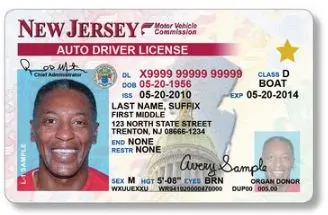New Jersey
ID Scanning Laws
New Jersey law allows retailers to scan IDs only for specific purposes. These include verifying the authenticity of an ID or the identity of a person if the person pays for goods or services with a method other than cash, returns an item, or requests a refund or an exchange. Other purposes include verifying the person’s age when providing age-restricted goods or services, preventing fraud or other criminal activity if the person returns an item or requests a refund or an exchange and the business uses a fraud prevention service company or system, and several others.




New Jersey State Legislature
ID Scanning Resources
The Legal Framework
New Jersey ID Scanning Laws and Regulations
New Jersey, the Garden State, has a unique set of laws and regulations regarding ID scanning. These laws are particularly relevant for businesses, especially those in the hospitality industry, such as hotels.
The Current Law
New Jersey law allows retailers to scan IDs only for specific purposes. These include verifying the authenticity of an ID or the identity of a person if the person pays for goods or services with a method other than cash, returns an item, or requests a refund or an exchange. Other purposes include verifying the person’s age when providing age-restricted goods or services, preventing fraud or other criminal activity if the person returns an item or requests a refund or an exchange and the business uses a fraud prevention service company or system, and several others.
Information collected by scanning a person’s identification card must be limited to the person’s name, address, date of birth, the State issuing the identification card, and identification card number. Information obtained for verifying authenticity and age cannot be retained. Information obtained for other purposes must be securely stored, and any breach of the security of the information must be promptly reported to the Division of State Police in the Department of Law and Public Safety and any affected person.
Penalties and Consequences
Violating these laws can result in serious consequences. Any person who violates the provisions of this act shall be subject to a civil penalty of $2,500 for a first violation and $5,000 for any subsequent violation. The penalty prescribed in this section shall be collected in a civil action by a summary proceeding pursuant to the “Penalty Enforcement Law of 1999,” P.L.1999, c.274 (C.2A:58-10 et seq.).
Implications for Hotels
For hotels in New Jersey, these laws have significant implications. Hotels must ensure that they are only scanning IDs for the purposes outlined in the law and that they are not retaining information beyond what is allowed. This can impact how hotels verify the identity of guests, particularly in situations where quick verification is necessary, such as large events or busy check-in periods.
Please note that this information is intended to provide a general overview and does not constitute legal advice. Always consult with a legal professional for advice specific to your situation
New Jersey Anti-Trafficking Network
Our Fight Against Human Trafficking



Knowledge Base
Frequently Asked Questions
Yes, a hotel in New Jersey can scan IDs, but only for the purposes outlined in the law. These include verifying the authenticity of an ID or the identity of a person if the person pays for goods or services with a method other than cash, returns an item, or requests a refund or an exchange.
Information obtained for verifying authenticity and age cannot be retained. Information obtained for other purposes must be securely stored, and any breach of the security of the information must be promptly reported.
Any person who violates the provisions of this act shall be subject to a civil penalty of $2,500 for a first violation and $5,000 for any subsequent violation.
Hotels selling age-restricted items, such as alcohol, must verify the age of the customer. This can be done by visually checking the ID or scanning the ID as per the conditions outlined in the law.
As of my knowledge cutoff in September 2021, there is no New Jersey Revised Statute 60-4.111.01. Please consult the latest legal resources or a legal professional for the most current information.
As of my knowledge cutoff in September 2021, there is no New Jersey Revised Statute 53-180.05. Please consult the latest legal resources or a legal professional for the most current information.
